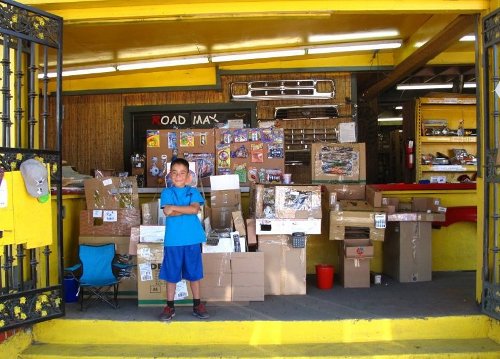Filed under: Etc., Government/Legal

We’ve never been falsely accused of a traffic violation, having earned every last second of our time before a judge, but when it does happen to us, we’ll certainly want to brush up on our physics. Dmitiri Krioukov, a physicist with the University of California, recently pleaded his way out of a fine for rolling through a stop sign using the power of mathematics. Krioukov worked up a four-page physics paper underscoring the differences between linear and angular motion to prove that he could have theoretically come to a complete stop and resumed traveling in the time it took another vehicle to pass between him and the citing officer.
The idea is that perception of speed can be altered depending on one’s viewpoint. Since the officer viewed Krioukov from the side and the physicist supposedly came to a complete stop very quickly before accelerating again just as fast, it appeared as if he never stopped at all. Or at least that was the notion. Whether or not the judge believed the professor didn’t matter so much as the fact that Krioukov managed to shed some doubt on the accusation. He was declared innocent and spared the $400 fine.
But the story doesn’t end there. The physicist left a flaw in his proof, and has invited everyone to see if they can figure it out. From our layman’s point of view, it appears Krioukov’s Toyota Yaris managed to fall from 22 mph to 0 and vault back up to 22 in the span of three seconds. Must be quite the machine. You can check out the full paper here.
from Autoblog






